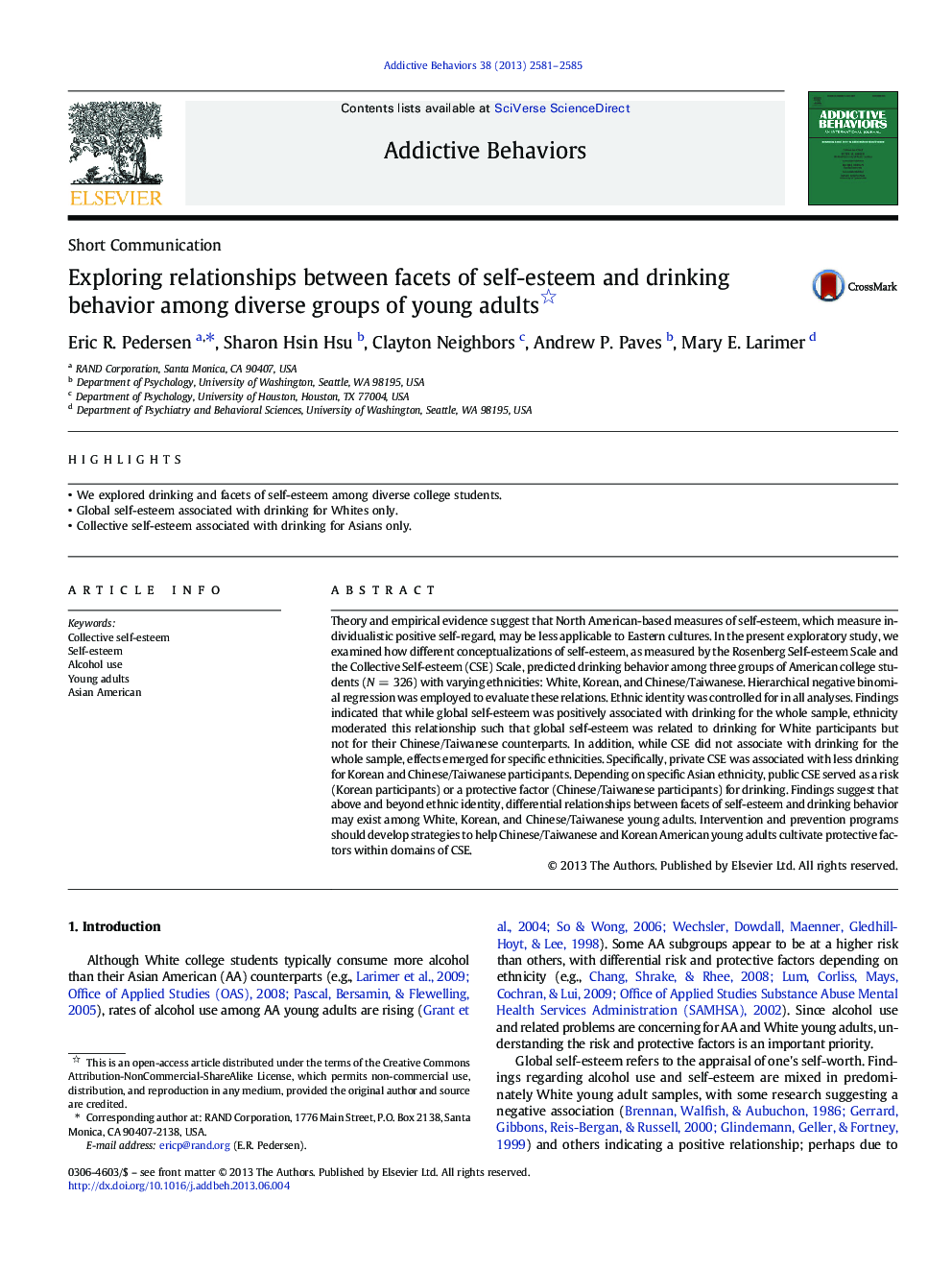| Article ID | Journal | Published Year | Pages | File Type |
|---|---|---|---|---|
| 10443284 | Addictive Behaviors | 2013 | 5 Pages |
Abstract
Theory and empirical evidence suggest that North American-based measures of self-esteem, which measure individualistic positive self-regard, may be less applicable to Eastern cultures. In the present exploratory study, we examined how different conceptualizations of self-esteem, as measured by the Rosenberg Self-esteem Scale and the Collective Self-esteem (CSE) Scale, predicted drinking behavior among three groups of American college students (NÂ =Â 326) with varying ethnicities: White, Korean, and Chinese/Taiwanese. Hierarchical negative binomial regression was employed to evaluate these relations. Ethnic identity was controlled for in all analyses. Findings indicated that while global self-esteem was positively associated with drinking for the whole sample, ethnicity moderated this relationship such that global self-esteem was related to drinking for White participants but not for their Chinese/Taiwanese counterparts. In addition, while CSE did not associate with drinking for the whole sample, effects emerged for specific ethnicities. Specifically, private CSE was associated with less drinking for Korean and Chinese/Taiwanese participants. Depending on specific Asian ethnicity, public CSE served as a risk (Korean participants) or a protective factor (Chinese/Taiwanese participants) for drinking. Findings suggest that above and beyond ethnic identity, differential relationships between facets of self-esteem and drinking behavior may exist among White, Korean, and Chinese/Taiwanese young adults. Intervention and prevention programs should develop strategies to help Chinese/Taiwanese and Korean American young adults cultivate protective factors within domains of CSE.
Related Topics
Life Sciences
Neuroscience
Behavioral Neuroscience
Authors
Eric R. Pedersen, Sharon Hsin Hsu, Clayton Neighbors, Andrew P. Paves, Mary E. Larimer,
